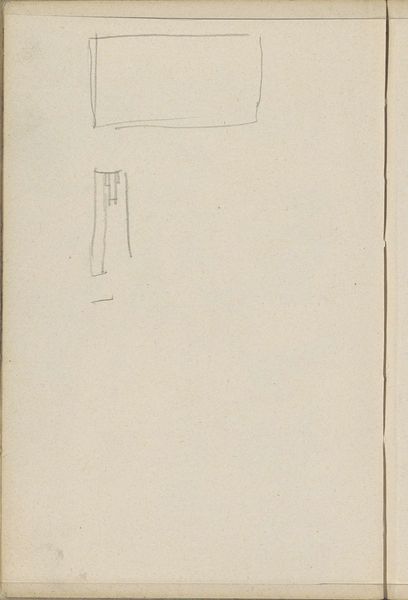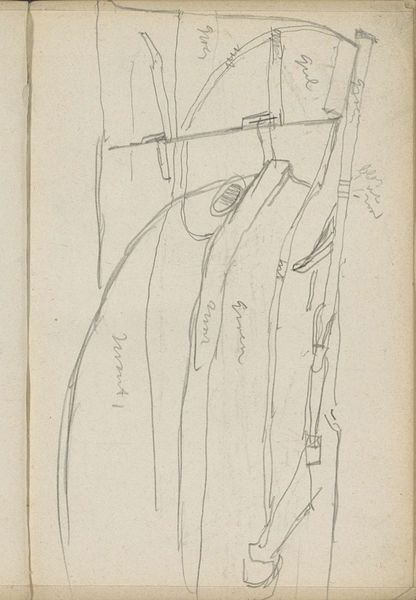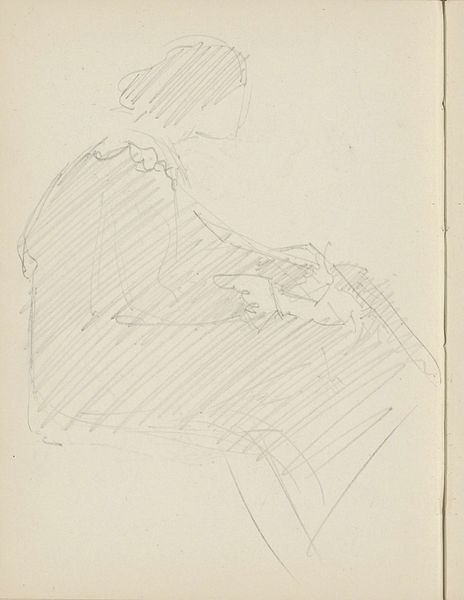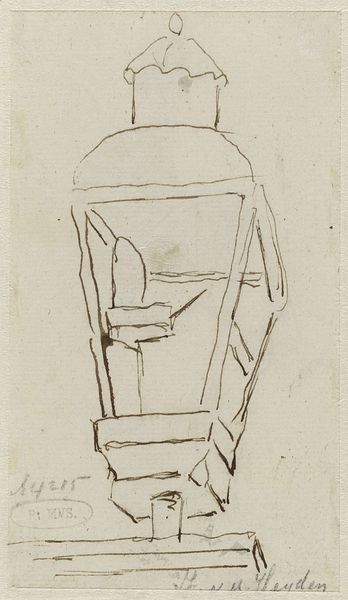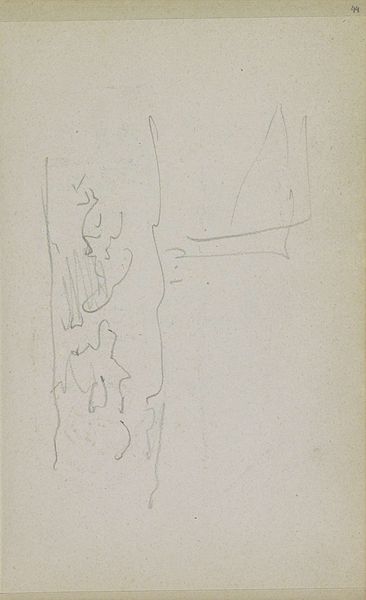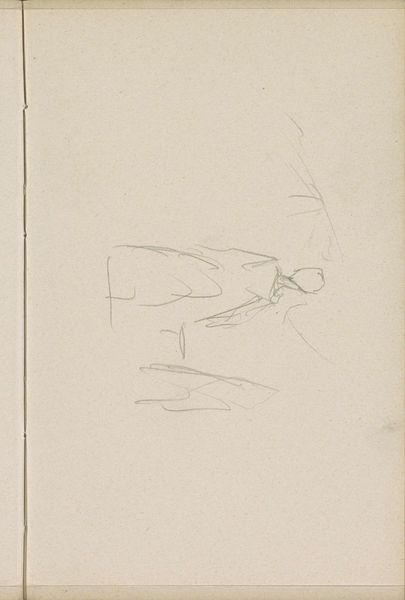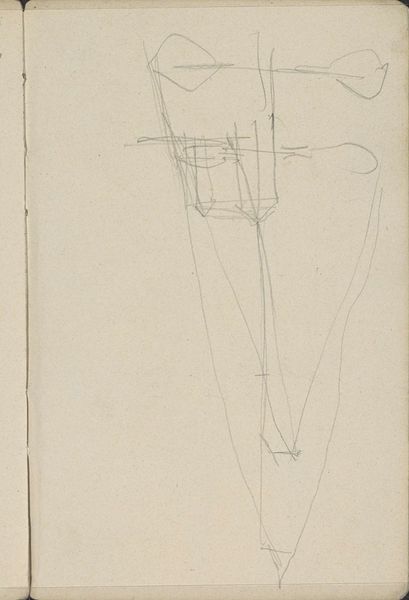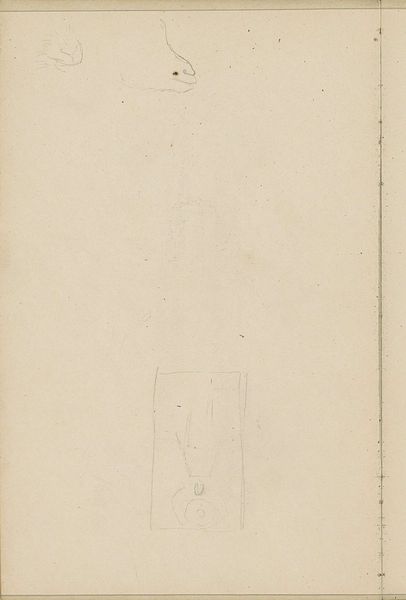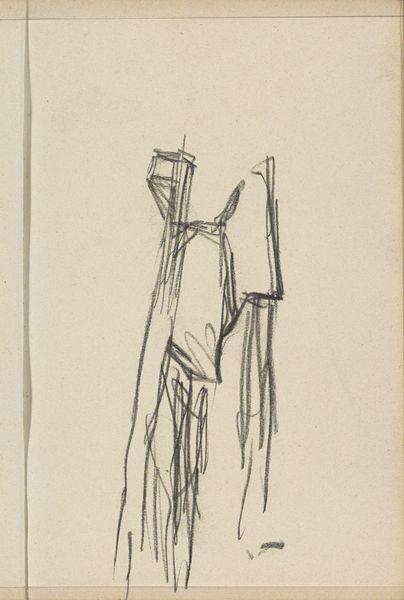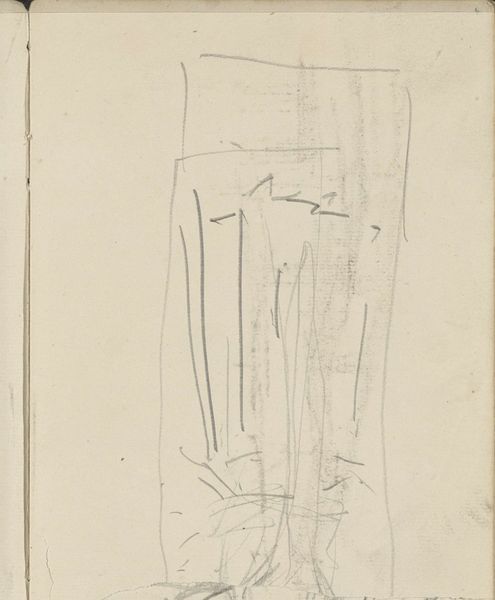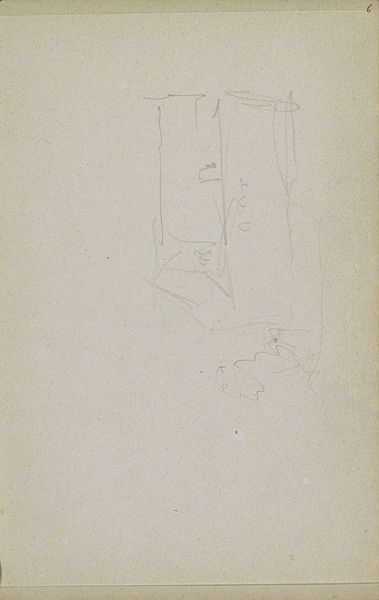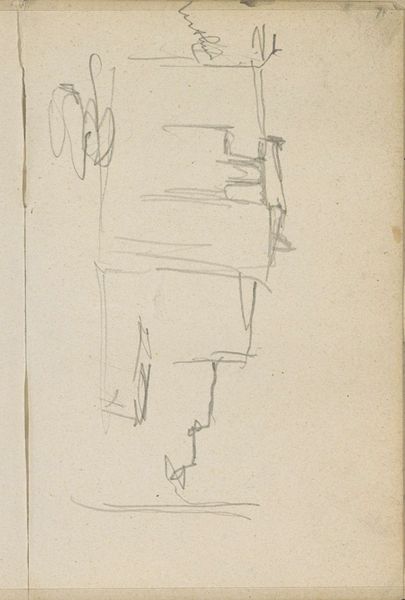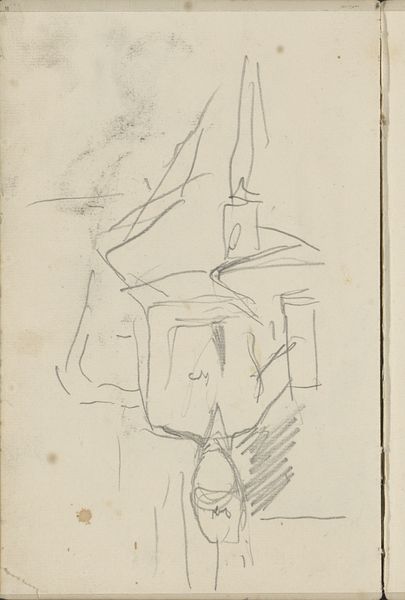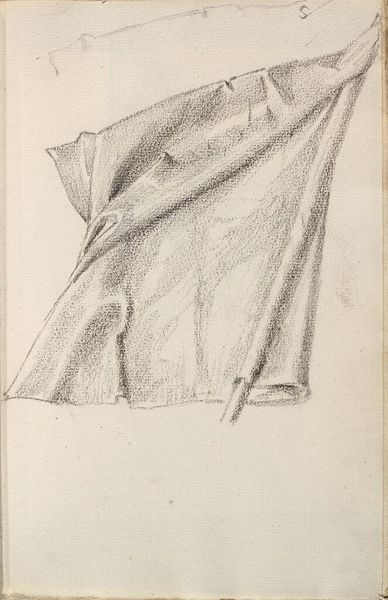
drawing, pencil, graphite
#
drawing
#
amateur sketch
#
aged paper
#
toned paper
#
light pencil work
#
pencil sketch
#
form
#
personal sketchbook
#
idea generation sketch
#
ink drawing experimentation
#
pencil
#
line
#
graphite
#
sketchbook drawing
#
sketchbook art
#
realism
Copyright: Rijks Museum: Open Domain
Curator: This is "Boot" by Johannes Tavenraat, likely created sometime between 1839 and 1872. It’s a drawing in graphite, perhaps a quick study. What do you make of it? Editor: It feels… utilitarian, almost humble. The subject is mundane, but the sketch has an honesty to it. It seems devoid of artistic pretension. The boot, though a simple object, represents travel, work, or even hardship depending on the time and the individual who wore it. Curator: Precisely. Tavenraat was part of a generation grappling with industrialization and urbanization. Boots, once handmade status symbols, were becoming increasingly mass-produced. A simple sketch like this could represent a wider commentary on societal changes. Editor: You know, that reminds me – boots have always been potent symbols. Think of the "seven-league boots" in fairy tales, emblems of power and speed, of conquering distance and adversity. Curator: That’s a great point! And beyond fairy tales, we see the boot’s symbolism echoed in military imagery and even national identities, think of how boots marched through countless wars. They're more than just foot coverings; they become cultural artifacts, emblems of power and journeys. Editor: And this drawing's almost stark depiction adds to that feeling of endurance and the stories these boots have lived through. You almost want to imagine whose foot filled that worn-out leather and what terrain it traversed. What social class? What aspirations? Curator: We must remember it is most likely from an artist's sketchbook, it might be no more than that. Its value as a simple artistic exploration might also hold more relevance in how the artwork relates to an artist and their everyday life. Its significance may rest upon it merely having a direct relationship to an artist rather than any particular political event of the era. Editor: True. There's a refreshing lack of artifice. That adds to its intimacy. It's like a whispered observation. Overall, I see something almost poignant in this quick sketch. Curator: And I find its historical context invaluable for understanding artistic responses to societal change and our ongoing dialogues with the objects that frame those. Editor: Indeed. Who knew so much could be gleaned from just a boot?
Comments
No comments
Be the first to comment and join the conversation on the ultimate creative platform.
